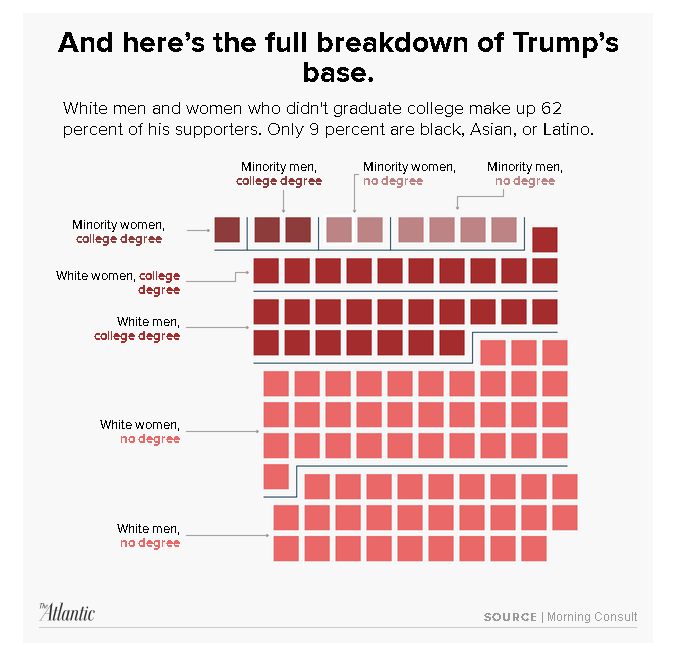The numbers of production oriented jobs isn't ever going back to rural areas. It just makes no sense for it to happen. And because of that, the rural population will always be a declining part of the total population.
Concentration of economic activity in cities is a
political choice, not a technological inevitability. And I do want to generalize here, because you're not applying that logic just to farming, you're applying it to everything. Economic efficiency above everything else.
The problem with that logic is that it made "
no sense" (technical or economic) to break AT&T (kind of relevant now that it aims at monopoly again). It made no sense to break Standard Oil. Or the big railways. Or Google and Microsoft and Amazon and the other "technological giants" (the modern versions of those past technological giants - there is nothing new under the sun in social dynamics, it seems). A monopoly is
more efficient than smaller companies, right? So it makes "no sense" either to protect inefficient rural industries from being crushed by either aspiring national giants or international competitors. No sense to protect family farms from big agro-industry, no sense to protect small manufactures of anything from bigger, more efficient competitors, no sense to protect local banks from the larger-scale, indeed "too-big-to-fail" giants that have spread in recent decades, no sense to... well, you get the idea.
And if you follow this logic, it must follow that there is no sense either in protecting workers from their employees. And indeed your country has seen (been victim of...) a bipartisan consensus on that, though both sides sometimes try to pretend otherwise.
But where has this pursuit of economic and technical "good sense" led you? Record corporate profits, the return of the robber barons, pardon me, the "captains of industry", off-shoring, stagnant or falling wages, under-employment or unemployment, corrupt politicians and indeed "legalized corruption" in the form of lobbying. It has led to the concentration of power in the hands of few, to increasing feelings (justified!) of political disenfranchisement. This is the triumph of TINA. Gone is the need to attempt to justify power and wealth on moral grounds - those that benefit from this arrangement can just justify it on
technical grounds!
Unsurprisingly, the losers in all this (and they are a majority), will eventually be fed up, and cease accepting technocratic excuses for why they should lose out in the distribution of
social power. Because, let's be honest, all these big corporations could be broken up (as past giants were), and the economy would work just fine (better) if that was done. Those record profits would be history, but the money would flow through far more hands. And the "free trade" that is used to construct a technical justification for the not breaking them (competition with the big ones from abroad...) could be rolled back to what it was 30 years ago and things would still work fine. So people can
can, and do, place the fault for their problems on the managerial class, the technocratic class, that has aided and defended the current "captains of industry" in exchange for a pick of the scraps from their table. And populists arise. Where have we seen this before?
By the way, recommended read for all those that thing "populist" is a bad word. History repeats itself there...




